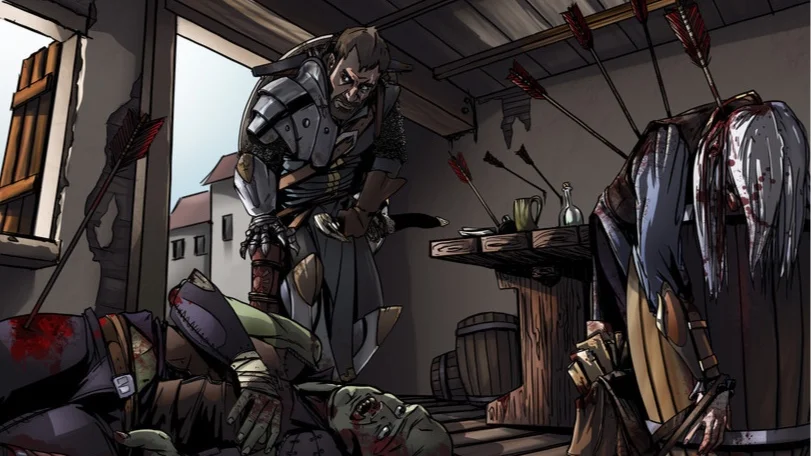Player Code of Conduct
When you gather 4-6 people are around a table, it is generally assumed that everyone is different in their own special way. That’s a really good thing in D&D, as it lends itself to a fun and exciting game. Can you imagine how boring it would be if everyone played a fighter? Personalities vary from table to table and just as each person sitting at the table is unique, every table develops its own personality which is also unique. Don’t go into a new game with new people and expect it to be just like one of your old tables. That will lead to disappointment, unless you left the other table because it sucked, then you may be pleasantly surprised.
That said, there are some basic rules that every player should follow. These are universal rules that players should understand going into any game. Not only will they help each player maintain a proper sense of etiquette, but they will help move the game along, keep everyone at the table happy, and increase happiness.
Respect the GM - You know the old adage: The Customer Is Always Right? That doesn’t apply here. The GM is the supreme arbiter (at least in Stephen’s mind) of the table. He has the final say as to what happens. Sometimes you may not like the answer, but you should be respectful and NOT argue till you’re blue in the face. A good GM will hear you out and make a decision based on what he thinks is best first for the game, second for the table, and then third for you. It’s nothing personal. A GM has to take into account everyone’s happiness at the table, not just one player. When he makes a decision, understand he has his reasons, and you need to respect that.
Learn the Rules - D&D Beyond has helped players organize their character sheets and remember all their bonuses and abilities. But don’t use this as a crutch. Buy the PHB and read it. I get that it’s approximately 135 pages long. I’m not saying that you need to memorize every spell. But you should understand the basics of how spells work. At the very least you should learn the rules for your character. If you’re going to commit to a minimum of 4 hours a week playing D&D, you should have the time to read up on how your character works. There are rules for a reason. Not knowing them slows down the game and that is one of the worst things a player can do. Games that get bogged down because someone is always looking up a rule on their turn quickly become very boring. As long as you don’t become a Hall Monitor, knowing the rules will keep the game moving along and everyone at the table happy.
Know what you’re going to do - Speaking of bogging the game down, not only can not knowing the rules slow the game down, but so can waiting for your turn to come up and then trying to figure out what you are going to do. The first step is paying attention to where you are in the initiative. You shouldn’t be surprised when it’s your turn. Next, be ready. Sure, fighters usually just hit things and that makes thing easy for them. But if you’re a spellcaster, you can bring the game to a screeching halt if you have no idea what spell you are going to cast. Have at least a general idea of what you are going to do. You may have to adjust somewhat based on what happens before you, but if you are still flipping through your spell cards when it’s your turn, the game stops so you can figure out what you are going to do.
Be engaged - I know GM’s that ban phones at the table. I think that is a bit extreme, especially since I use a couple apps on my phone to look up things pertaining to the game. But scrolling through Instagram is just poor etiquette. Just because it’s not your turn isn’t a good reason to check out. Not only should you respect the GM, but you need to respect the other at the table. If you aren’t paying attention to what others are doing, why should they care or listen to what you want to do? Plus if you’re just screwing around, you’ll have no idea what is happening when your turn comes around. See rule 4.
Have Fun - If you aren’t having fun, then what the fuck are you doing at the table. Don’t make your fun dependent on the other people at the table. Enjoy yourself. Get immersed in your character. If you want to use a funny voice for your goblin wizard, go ahead. As long as your actions aren’t intruding on other’s fun, I say go for it. It’s also ok to get frustrated sometimes. Things happen that are completely out of your control. Sometimes characters die, and that sucks. Mourn the loss for a little bit, then pull out that new character sheet and move on. Have fun creating a new character (and hopefully don’t let them get killed immediately).
Don’t be a dick - This should be self explanatory. If it’s not, then you’re probably being a dick.
To sum it up, have fun and pay attention. Players are responsible for their own fun. As long as you aren’t infringing on others fun and following these simple rules, you should play how you want.
Agree with these rules? Do you feel I’m missing something? Tell me down below!


